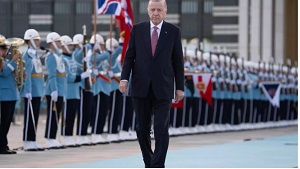A new equation for motivation: Supporting public employees beyond salaries - By Zaid K. Maaytah, The Jordan Times
Many governments around the world are rethinking how they motivate their public-sector employees, moving beyond the idea that salary is the sole driver of performance toward a broader understanding of wellbeing, appreciation, and quality of working life. As public budgets come under increasing pressure and expectations from government institutions continue to rise, several countries have begun adopting innovative, low-cost ways to strengthen employee morale. They rely on recognition, flexible work arrangements, and a more holistic view of dignity and social wellbeing as practical tools to improve performance. These shifts reflect a deeper understanding of human motivation, where a sense of value becomes as important as financial compensation. And for Jordan, where the public sector forms a central pillar of national service, these global experiences offer an inspiring opportunity to build a more supportive and motivating work environment within available resources.
In Jordan, the discussion around public-sector wages has grown increasingly urgent. Rising living costs have renewed calls for salary adjustments, yet fiscal space remains limited as the state continues to shoulder major commitments in education, health, and infrastructure. Between constrained budgets and the need to support employees, a new perspective becomes necessary—one that views motivation as more than income, and recognizes appreciation, comfort, and professional growth as essential pillars for maintaining performance and positive work culture.
International experiences provide practical examples worth considering. In Finland and Denmark, public employees receive vouchers to visit cultural and natural sites, offering them healthy breaks while reconnecting them with their communities. In Singapore, government employees enjoy discounts at restaurants and shops through public-private partnerships that support both morale and local business activity. In France and Spain, municipalities provide additional leave days or organize appreciation events to celebrate years of service.
Despite the variety of approaches, these initiatives share one central insight: people respond strongly when they feel valued. Non-monetary incentives do not replace salaries, but they complement them by addressing the social and emotional dimensions of work. They send a message that institutions see their employees as individuals with worth, not merely as positions within an administrative structure. International outcomes also show that such incentives directly improve performance—when employees feel appreciated, absenteeism declines, creativity rises, teamwork strengthens, and service quality improves.
Jordan can shape its own version of these approaches in ways that reflect its context and capacities. Simple measures can deliver meaningful results. Partnerships between public institutions and local businesses, restaurants, or domestic tourism sites can provide employees with discounts that encourage rest while supporting local economies. Vouchers for visits to Jordan’s heritage and natural destinations can promote wellbeing and strengthen connection with the country. Additional leave days for exceptional performance can create a healthy balance between work and personal life.
The impact of such initiatives extends far beyond individual motivation. When a teacher enjoys a short break in one of Jordan’s governorates, or when a government employee uses a discount at a local shop, the gesture becomes more than a benefit—it becomes a message of mutual appreciation that reinforces trust, stimulates the local economy, and affirms that public service is both a social and economic bond.
Importantly, these efforts do not require major financial investments, but rather coordination and shared vision. Through collaboration between ministries, municipalities, and the private sector, Jordan can build a national platform for symbolic incentives that express the state’s appreciation for its employees. These ideas can begin as pilot programs and grow gradually, guided by the belief that recognition strengthens performance.
At the heart of this approach lies a simple truth: motivation is not bought; it is built. Every thank-you note, every short break, and every gesture of appreciation helps create a workplace where employees feel seen and valued. For decades, Jordan’s public servants have carried the values of commitment and responsibility. Investing in their wellbeing through innovative, non-financial incentives is an investment in the strength of the state itself, and a step toward a public sector that feels proud, inspired, and closely connected to the people it serves.
Zaid K. Maaytah — Researcher in Economics and Behavioral Policy
Latest News
-
 Jordan condemns Israeli minister’s calls to target Palestinian leadership
Jordan condemns Israeli minister’s calls to target Palestinian leadership
-
 Turkey seeks to host next COP as co-presidency plans falter
Turkey seeks to host next COP as co-presidency plans falter
-
 ‘Israel’ open to US F-35 sale to Saudi if it brings normalization: Axios
‘Israel’ open to US F-35 sale to Saudi if it brings normalization: Axios
-
 "Israeli tank fires near our forces in Lebanon," UNIFIL
"Israeli tank fires near our forces in Lebanon," UNIFIL
-
 King meets with Pakistan PM in Islamabad, emphasises importance of expanding cooperation
King meets with Pakistan PM in Islamabad, emphasises importance of expanding cooperation